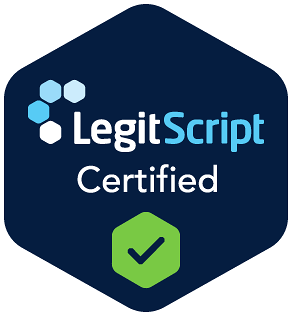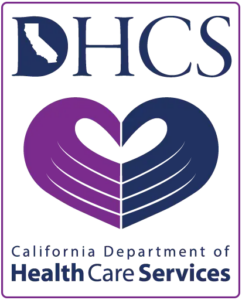Privacy concerns often prevent people from seeking addiction treatment. Many worry about protecting their reputation, career, and personal relationships during recovery.
Private drug rehab offers a solution that prioritizes confidentiality while delivering effective treatment. We at Surf City Detox understand these concerns and provide comprehensive privacy protection throughout the recovery process.
Understanding Private Drug Rehab
Private drug rehab operates fundamentally different from public treatment programs. Public facilities typically handle larger patient populations with limited staff ratios, while private centers maintain smaller populations that allow for individualized care plans. The average staff-to-patient ratio in private facilities reaches 1:4 compared to 1:15 in public programs, according to the Substance Abuse and Mental Health Services Administration. This difference translates into personalized therapy sessions, flexible schedules, and immediate access to medical professionals when needed.
What Makes Private Rehab Different from Public Treatment
Private facilities focus on individualized attention rather than mass treatment approaches. Staff members dedicate more time to each patient, which creates opportunities for deeper therapeutic relationships and customized interventions. Private centers also offer same day intake in most cases, while public programs often maintain waiting lists that can extend for weeks or months. The treatment environment in private facilities emphasizes comfort and privacy, with amenities that support healing without institutional feel.
Types of Private Treatment Programs Available
Private rehab centers offer multiple treatment tracks that include residential programs (30-90 days), intensive outpatient programs with 9-20 hours weekly, and partial hospitalization that provides 6 hours of daily treatment. Luxury facilities in locations like Malibu and Newport Beach provide resort-style amenities including private rooms, gourmet meals, and alternative therapies such as equine therapy and acupuncture. Executive programs cater specifically to business professionals, offering secure communication access and flexible schedules that accommodate work responsibilities.
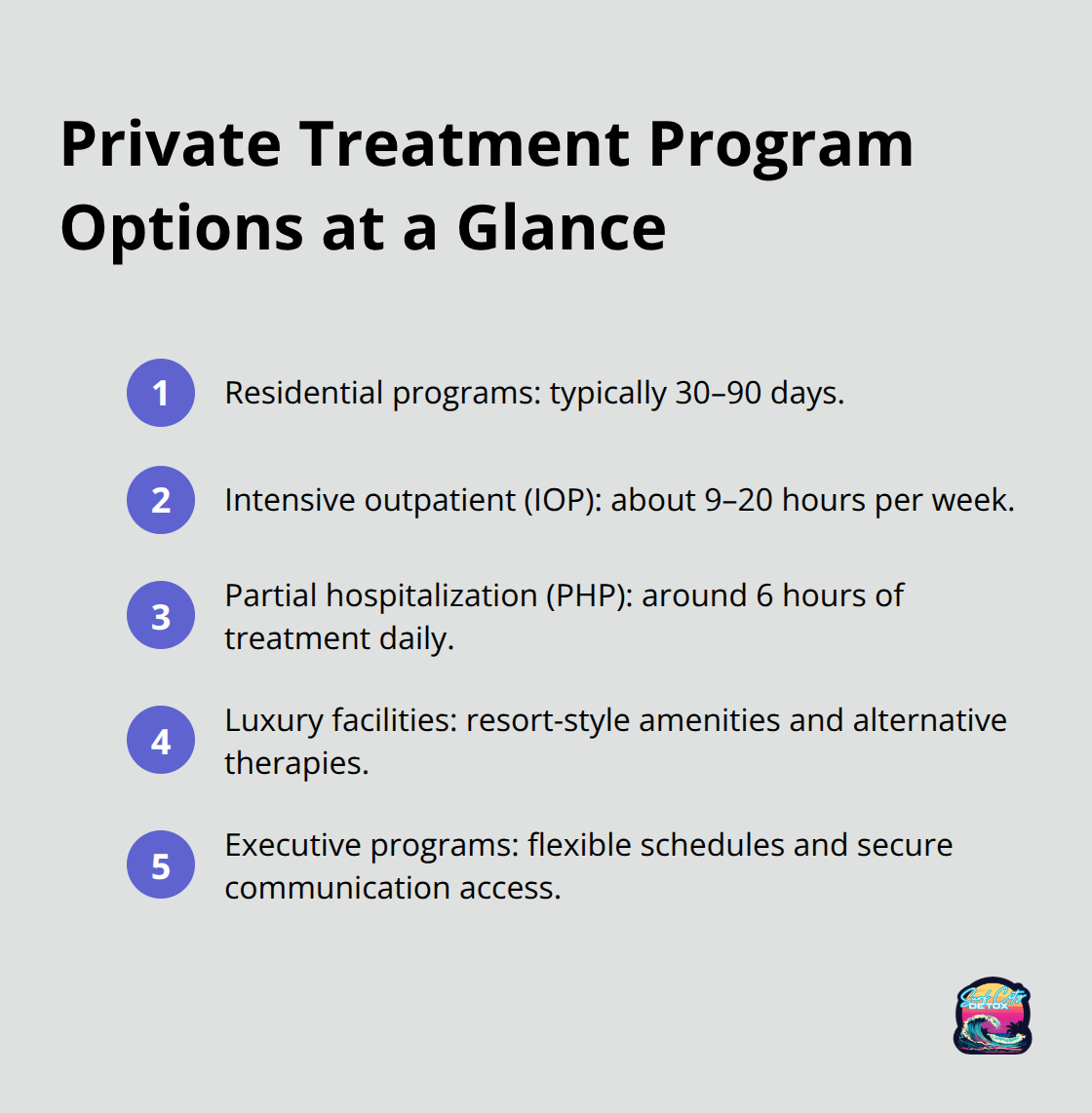
Cost Considerations and Insurance Coverage Options
Private drug rehab costs range from $15,000 to $30,000 for 30-day residential programs, with luxury facilities reaching $100,000 monthly. The Affordable Care Act mandates insurance coverage for substance use treatment, yet coverage varies significantly between plans.
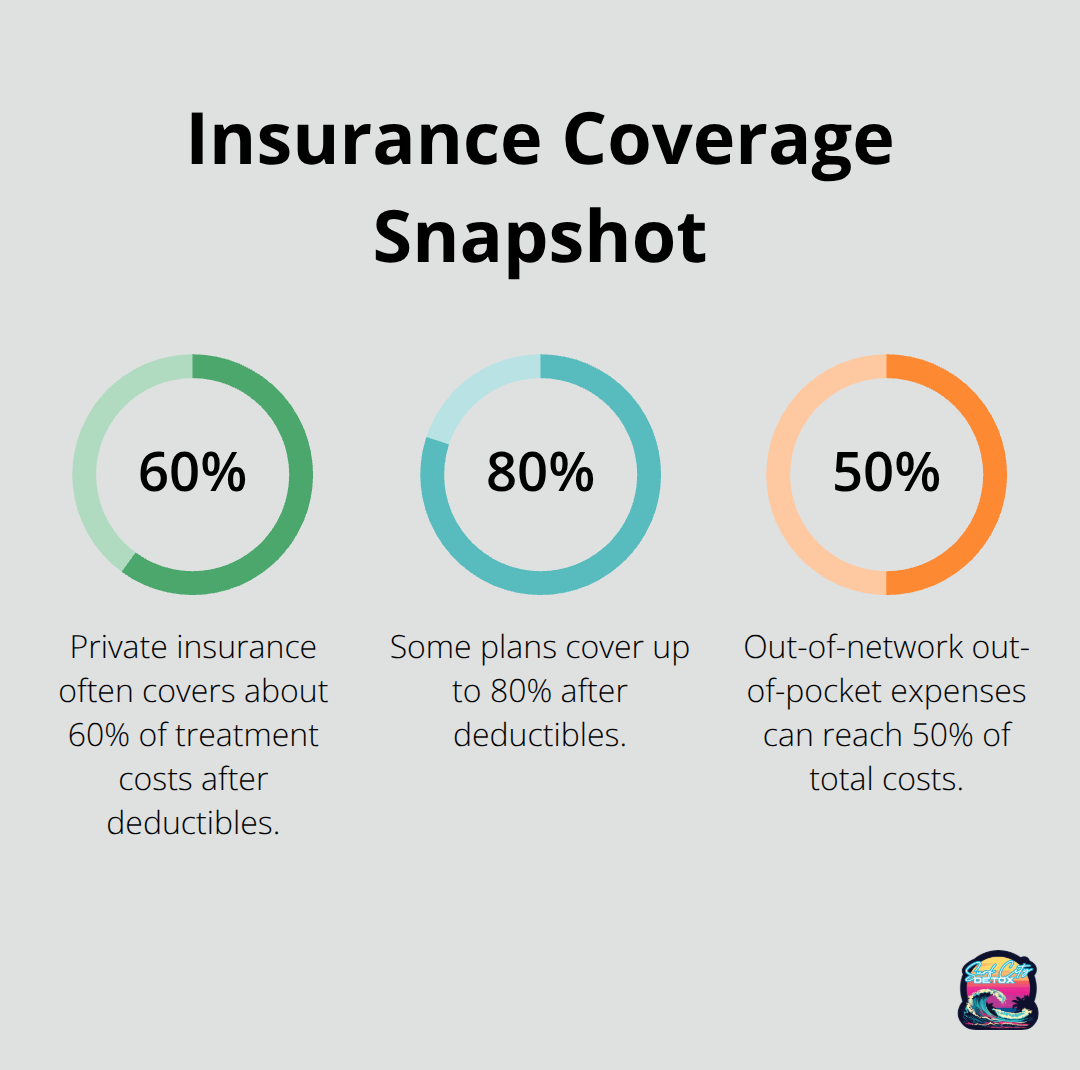
Most private insurance covers 60-80% of treatment costs after deductibles (though out-of-network facilities require higher out-of-pocket expenses, often 40-50% of total costs). The Mental Health Parity and Addiction Equity Act requires equal coverage for addiction treatment compared to medical procedures, but patients must verify specific benefits before admission.
These financial and structural differences create the foundation for enhanced privacy protection, which becomes even more important when considering how treatment centers safeguard your personal information throughout the recovery process.
How Are Your Treatment Records Protected
Federal privacy laws create multiple layers of protection for addiction treatment records that exceed standard medical privacy protections. The Health Insurance Portability and Accountability Act establishes baseline protections for all medical information, while 42 CFR Part 2 provides specialized confidentiality rules specifically for substance use disorder treatment. Under Part 2, treatment centers cannot disclose that you received addiction treatment without your written consent, and this protection applies even to law enforcement requests. These regulations have increased treatment-seeking behavior as individuals feel safer when they pursue help without fear of discrimination or legal consequences.
Your Rights During Treatment
You control exactly who receives information about your treatment through specific consent forms that detail what information gets shared and with whom. Treatment centers must inform you of your privacy rights during intake and provide written documentation of these protections. You can revoke consent at any time, either verbally or in writing, and facilities must document these changes immediately. Emergency situations allow limited disclosure without consent only when there exists immediate threat to health or safety, but centers must document these disclosures and notify you as soon as possible.
Protecting Information from Employers and Family
Most treatment centers use unbranded transportation and discrete communication methods to protect client identity. Professional programs often provide secure communication access for work obligations while they maintain confidentiality about your location and treatment status. The Family Medical Leave Act protects your job during treatment, and employers cannot access your medical records without explicit consent. Many clients choose facilities located away from their home communities to minimize recognition risk, while luxury centers like those in Newport Beach often treat only 4-8 clients simultaneously to maintain maximum discretion.
How Centers Safeguard Your Personal Information
Treatment facilities implement comprehensive security measures that protect both physical and digital records. Staff members receive specialized training in HIPAA and 42 CFR Part 2 compliance (with annual updates required to maintain certification). Electronic health records use encryption and multi-factor authentication to prevent unauthorized access. Physical files remain locked in secure areas with limited staff access, and disposal follows strict protocols that include professional shredding services. Penalties for unauthorized disclosure can reach $50,000 per violation, which motivates facilities to maintain rigorous privacy standards throughout all operations.
These robust privacy protections work hand-in-hand with the personalized care and enhanced amenities that make private rehabilitation programs particularly effective for individuals who value discretion during their recovery process.
Why Private Rehab Delivers Superior Results
Private rehabilitation programs produce measurably better outcomes through personalized treatment approaches that address individual needs rather than apply generic protocols. Research shows that substance use disorders have relapse rates of 40-60%, highlighting the importance of comprehensive treatment approaches. Private facilities typically maintain caseloads of 8-12 clients per therapist, while public programs often exceed 25 clients per counselor (according to SAMHSA data). This difference allows therapists to develop comprehensive understanding of each client’s trauma history, addiction triggers, and co-occurring mental health conditions that require specialized intervention.
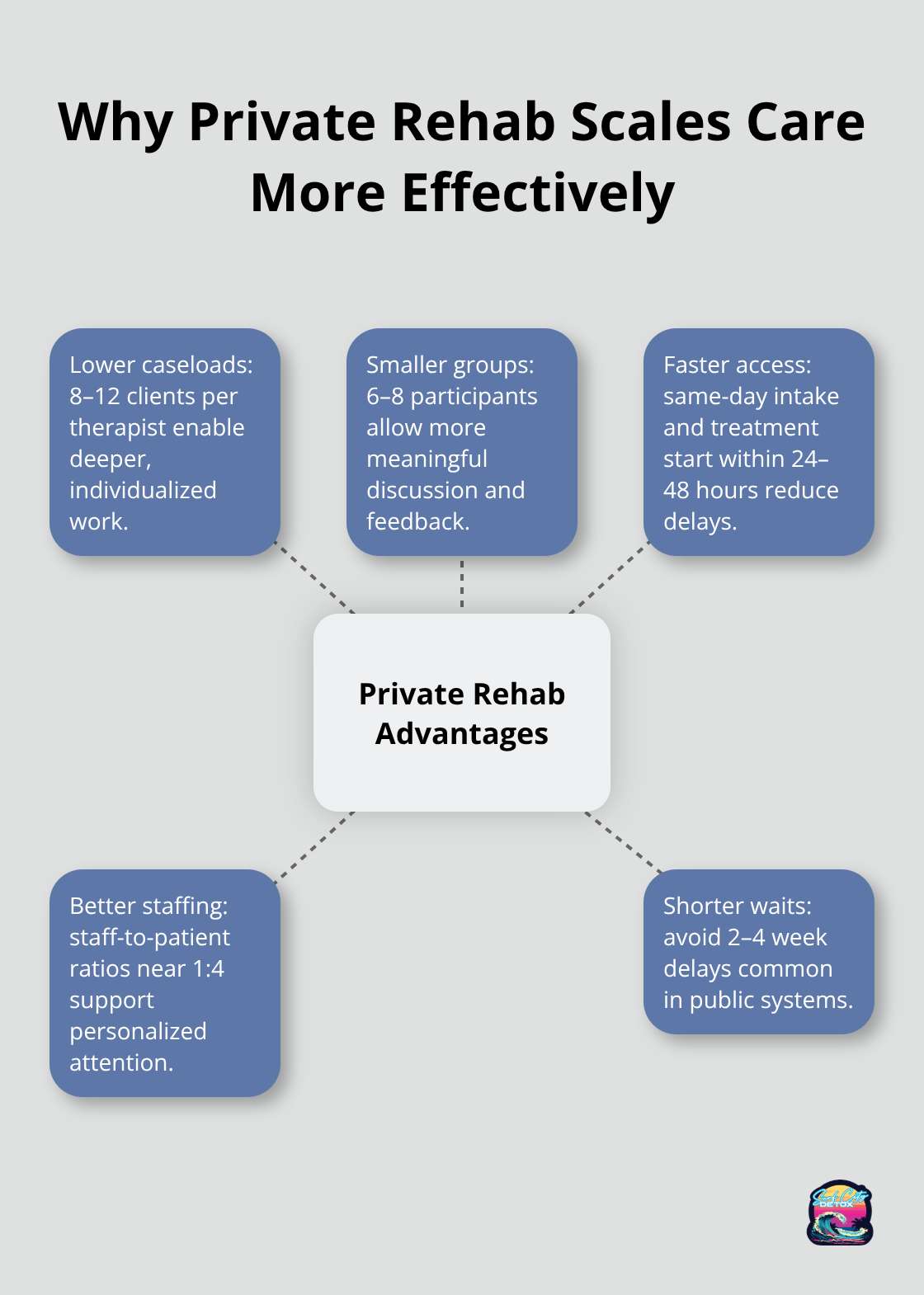
Immediate Access and Flexible Treatment Schedules
Private programs eliminate wait periods that plague public treatment systems, where delays average 2-4 weeks for admission. Most private facilities offer same-day intake assessments and can begin treatment within 24-48 hours of initial contact. Executive programs provide evening and weekend therapy sessions to accommodate professional responsibilities, while standard programs offer morning or afternoon tracks that fit different lifestyle needs.
Treatment duration adapts to individual progress rather than rigid 30-day cycles. Some clients complete programs in 21 days while others benefit from 60-90 day stays. This flexibility prevents premature discharge and recovery management approaches have consistently produced better substance use outcomes compared to standard assessments.
Resort-Style Amenities That Support Recovery
Luxury private facilities provide amenities that actively contribute to recovery rather than serve as mere comfort features. Gourmet nutrition programs address nutritional deficiencies common in addiction, while fitness centers and yoga studios help rebuild physical health and manage stress without substances. Private rooms eliminate the distractions and conflicts that occur in shared accommodations (clients can process emotions and practice coping skills in peaceful environments).
Spa services like massage therapy and acupuncture address physical pain that often drives substance use. Meditation gardens and ocean views reduce cortisol levels that trigger cravings. These amenities work together to create environments that support long-term sobriety beyond the treatment period.
Enhanced Therapeutic Approaches
Private facilities offer specialized therapies rarely available in public programs. Trauma-informed care addresses underlying emotional wounds through EMDR and somatic therapy techniques. Art therapy, music therapy, and equine-assisted therapy provide alternative expression methods for clients who struggle with traditional talk therapy approaches.
One-on-one sessions occur multiple times weekly rather than monthly (as common in public facilities). Group therapy maintains smaller sizes of 6-8 participants compared to 15-20 in public programs, which allows deeper exploration of personal issues and stronger peer connections that support recovery.
Final Thoughts
Private drug rehab provides unmatched privacy protection through federal confidentiality laws that exceed standard medical privacy requirements. These programs deliver superior outcomes with personalized treatment plans, immediate access, and resort-style amenities that actively support recovery. The combination of 42 CFR Part 2 protections, smaller staff-to-patient ratios, and discrete treatment environments creates ideal conditions for individuals who value confidentiality during recovery.
You must evaluate your specific privacy needs, insurance coverage, and treatment preferences to make an informed decision. Private facilities offer flexible schedules, one-on-one therapy sessions, and specialized programs that address underlying trauma and co-occurring mental health conditions. The investment in private treatment often pays dividends through reduced relapse rates and comprehensive aftercare support (with many clients maintaining sobriety for years after completion).
We at Surf City Detox understand that seeking help requires courage, especially when privacy concerns create additional barriers. Our facility provides medically supervised detox and residential treatment with complete confidentiality throughout your recovery journey. Contact us today to learn how our private drug rehab program can help you reclaim your life while protecting your privacy.

